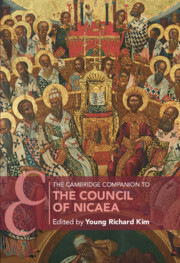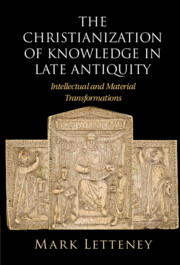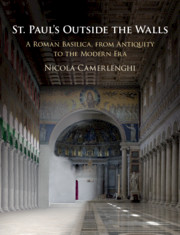The Cambridge Companion to the Council of Nicaea
Every Sunday, Christians all over the world recite the Nicene Creed as a confession of faith. While most do not know the details of the controversy that led to its composition, they are aware that the Council of Nicaea was a critical moment in the history of Christianity. For scholars, the Council has long been a subject of multi-disciplinary interest and continues to fascinate and inspire research. As we approach the 1700th anniversary of the Council, The Cambridge Companion to the Council of Nicaea provides an opportunity to revisit and reflect on old discussions, propose new approaches and interpretative frameworks, and ultimately revitalize a conversation that remains as important now as it was in the fourth century. The volume offers fifteen original studies by scholars who each examine an aspect of the Council. Informed by interdisciplinary approaches, the essays demonstrate its profound legacy with fresh, sometimes provocative, but always intellectually rich ideas.
- Provides fifteen unique, original scholarly essays, each on a different aspect of the Council of Nicaea and its legacy
- Explores the context before, the events and outcomes of, and the short- and long-term impact of the Council of Nicaea
- Features an international team of contributors
Reviews & endorsements
'This volume is well worth reading. To those new to the trinitarian debates of the fourth century it offers an up-to-date introduction to the most important aspects of the Council of Nicaea and its lasting legacy. Hardened veterans in the field are also guaranteed to find something new and provocative in the diverse and stimulating chapters of this excellent Cambridge Companion.' Karl Heiner Dahm, The Classical Review
'… a rich selection … The Companion to the Council of Nicaea provokes further thought about its subject as well as interest in the facets on offer here; and that, I hope, will be a sign that it has achieved its purpose.' Mattias Gassman, Church History
'… those who teach early Christian doctrine, and those who appreciate the painstaking method of traditional patristic scholarship, will find … something to engage them here.' Cannon Robin, Church Times
'The volume as a whole proves to be useful and valid … For many topics, this volume will constitute a valuable starting point for further studies.' Henryk Pietras, Adamantius
'… one cannot help but recommend this volume, a most useful and essential research tool on both a historical and theological level for those interested in the Council of Nicaea. Young Richard Kim must indeed be congratulated for having been able to conceive such a course and to have put together such a group of scholars.' Giulio Maspero, Annales Historiae Conciliorum
Product details
January 2021Hardback
9781108427746
400 pages
230 × 150 × 15 mm
0.45kg
Available
Table of Contents
- 1. Introduction Young Richard Kim
- Part I. Contexts:
- 2. Imperial Fathers and their Sons: Licinius, Constantine, and the Council of Nicaea Raymond Van Dam
- 3. Arius and Arianism: the Origins of the Alexandrian Controversy Rebecca Lyman
- Part II. The Council:
- 4. Hosting the Council in Nicaea: Material Needs and Solutions Ine Jacobs
- 5. Reconstructing the Council of Nicaea David M. Gwynn
- 6. The Elephant in the Room: Constantine at the Council H. A. Drake
- Part III. Outcomes:
- 7. The Creed Mark J. Edwards
- 8. The Twenty Canons of the Council of Nicaea Andreas Weckwerth
- 9. The Council of Nicaea and the Celebration of the Christian Pasch Daniel P. Mc Carthy
- 10. Narrating the Council: Eusebius on Nicaea Aaron P. Johnson
- Part IV. The Aftermath:
- 11. The Reception of Nicaea and Homoousios to 360 Sara Parvis
- 12. The Emergence of the Pro-Nicene Alliance Mark DelCogliano
- 13. Apollinarius and the Nicene Homoousion Kelley McCarthy Spoerl
- 14. The Council of Ariminum (359) and the Rise of the Neo-Nicenes D. H. Williams
- Part V. The Long Reception:
- 15. The Legacy of the Council of Nicaea in the Orthodox Tradition: the Principle of Unchangeability and the Hermeneutic of Continuity Paul L. Gavrilyuk
- 16. Catholic Reception of the Council of Nicaea Geoffrey D. Dunn.







